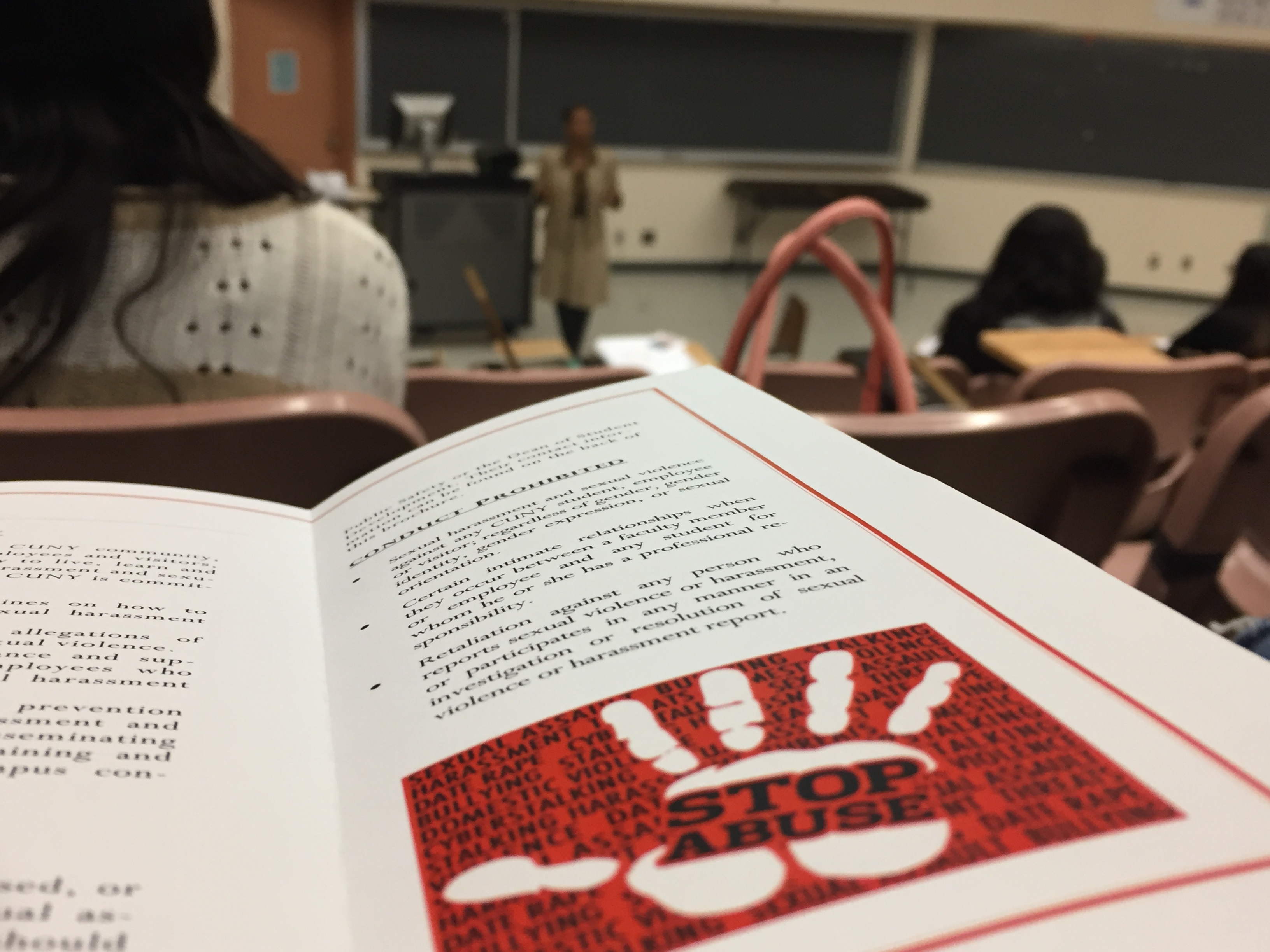
BY VALERIE VICTOR
York College is now conducting mandatory “Title IX” enrichment seminars. According to Gail Marshall, the Higher Education Assistant of Compliance and Legal Affairs at York College, all transfer students, students in clubs and organizations, study abroad students, SEEK students and new employees are mandated to attend the seminar.
The mandatory two hour seminar defines the new Title IX law, sexual harassment, sexual violence, and explains ways to report matters like these to public safety. “Students need to have this information,” said Marshall. Title IX seminars will increase awareness throughout the campus as well as inform students and faculty of the resources they have available to them if they encounter violence or sexual harassment.
“I think it’s a good idea because people need to know where to go if they have a problem,” said Carolina Chicaiza, a Psychology major at York College. Although some students feel the mandatory seminar is useful others feel that making the seminar a requirement is too much.
“The concept is really great, especially for new students that don’t know the ropes, but mandating it is just going too far,” said Accounting major Fahim Rashid, 22. “Maybe if the school strongly suggests the seminar it would be more suitable. It shouldn’t be forced.”
Between the years 2012 and 2014, only two incidents in the sexual offense category were reported and filed with the Department of Public Safety at York College, according to the 2015 annual campus security report. “One of the things that the federal government is saying is that there is underreporting, and that there’s no proper investigation of complaints,” said Marshall.
Because many of these occurrences are not reported, Marshall explains that Title IX seminars will increase awareness among students and possibly result in more complaints being filed. The more reports submitted the better investigations will be around campus. Marshall also explained the importance in the participation of bystanders to help fight sexual offenses around campus.
“Even if you aren’t the victim, that’s where bystanders come in because there are many people that don’t come forward,” said Marshall. “Anonymous complaints are very tricky,” she added. “But we have emails and you can call the Title IX contacts on campus.”
While reporting is low among students, the number of students who know where to go or what to do when they’ve been harassed or assaulted is also low. “A lot of the time they get to my office and say I didn’t know who to talk to,” said Marshall. “I just got a call from the central office last week about a complaint from a professor who didn’t know who to speak to.”
“I don’t think enough students know where to go,” said Rashid. “Even me, I don’t know where to go or where any of these offices are.”
The goal is to educate students and faculty on these issues, raise awareness, and let everyone know what to do. “One of the good things that happens is that once people are aware, we get more complaints. At least people won’t feel afraid about coming to my office or filing these complaints with the school,” said Marshall.
Marshall’s office is located in 2H05C, and her phone number is (718) 262-2141.
“People need to become aware of the situation throughout the country and how people’s lives are affected, not just females but males as well,” said Marshall.

